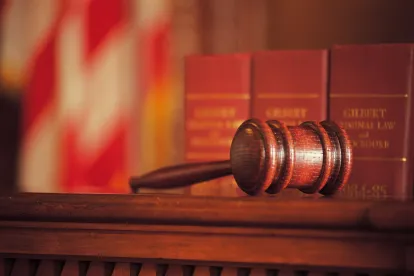As discussed in our previous post, one of the most critical tasks for Patent Owners during the Inter Partes Reviews (“IPR”) discovery period is deposing the Petitioner’s expert. Since IPR depositions are treated differently than fact-gathering depositions in district court litigation, a Patent Owner should approach the IPR deposition with different goals. In IPR proceedings, expert witnesses provide declarations as affirmative testimony prior to the depositions, and barring exceptional circumstances, those witnesses are not allowed to provide additional testimony at oral argument or otherwise. Accordingly, when deposing witnesses in an IPR, a Patent Owner should be aware that the testimony being obtained is likely to be the final word from the witness. As such, the Patent Owner’s goal should be ensuring that any facts or opinions provided in support of the Petitioner’s invalidity positions are challenged and explored without providing a platform for the witness to supplement.
Here are 3 recommendations for approaching this type of deposition:
#1: Treat the deposition like a cross-examination of the witness
Identify and cover the parts of the witness’s declaration that will best support your positions. Since there is no live testimony at trial, there is no need to cover each and every paragraph of the witnesses’ declaration. Nor would such an approach be wise where it would afford the witness an opportunity to comment on (and potentially reinforce) each point that was made. Instead, keep the scope narrow and focused on the issues that will factor into the Board’s evaluation of validity. Keep in mind that the witnesses’ deposition testimony is their final word, and your only opportunity to elicit helpful concessions where the evidence or legal support is lacking.
#2: Focus the deposition on areas in which the witnesses did not adequately support their conclusion
In doing so, you can raise doubts about the veracity of their opinions and highlight any lack of corroborating evidence. The goal is to identify the weaknesses and elicit admissions that can be easily quoted for the Board in the responsive brief. Stick with close-ended questions that are narrow and specific enough to allow you to gain responsive answers without affording the witness latitude to ad-lib and introduce new theories. This will force the witness to concede wherever there is a lack of supporting evidence without giving that witness an opportunity to provide a new opinion or supplement their opinion.
#3: Do not swing for the home run
The goal of the IPR deposition is to poke holes in the witness’s trial testimony without giving the witness an opportunity to clarify or expand on their opinions. In the same way that you generally do not ask a cross-examination witness a question you do not know the answer to, you should avoid the temptation to elicit a broad statement or conclusion concerning validity. Doing so carries a low probability of success and will only open the door to supplementation by the witness. Also, remember that there is no prohibition against the witness conferring with opposing counsel after the cross-examination to prepare the witness for any redirect. By trying to get the witness to concede too much, it will only open the door to opposing counsel trying to button up any deficiencies. Instead, keep the scope limited to gaining focused admissions that cannot be requalified or walked back. Avoid the use of broad, open-ended questions that can justify a redirect filled with questions that can allow the witness to supplement and gap-fill. Given that the witness likely knows the technology better than the law, focus on the legal deficiencies and keep technical questions tight and focused. You should leave any factual disputes about the technology to your own witnesses who are much better suited to address those issues.
By planning ahead and not trying to accomplish too much, an IPR deposition can be an effective tool for managing the evidentiary record and obtaining testimony that effectively supports your positions.





 />i
/>i

